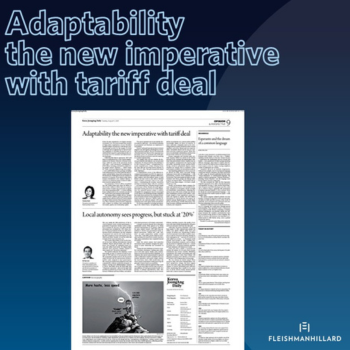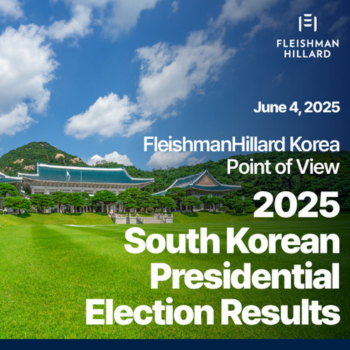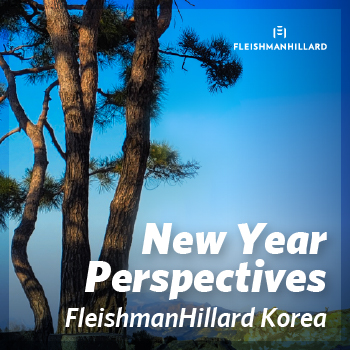South Korea’s Presidential Impeachment Verdict and Election Prospects
South Korea’s Presidential Impeachment Verdict and Election Prospects
April 4, 2025 (SEOUL)
![]()
Acting Chief Justice Moon Hyung-bae of the Constitutional Court declared today that ‘the severity and far-reaching consequences of the respondent’s violations of constitutional order are so significant that the benefits of protecting the Constitution through removal outweigh the national costs of impeachment,’ and announced the unanimous decision of the justices to remove the president from office.
The Constitutional Court today delivered its final ruling on the impeachment trial of President Yoon Suk-yeol, 111 days after the National Assembly passed the impeachment motion on December 14 of last year. This deliberation period exceeded those of former Presidents Roh Moo-hyun and Park Geun-hye, which lasted 63 and 91 days, respectively.
In a landmark decision, South Korea’s Constitutional Court unanimously upheld the impeachment of President Yoon Suk-yeol, leading to his immediate removal from office. The ruling, delivered in the Grand Chamber of the Constitutional Court in Seoul’s Jongno District, was broadcast live and witnessed by members of the public. All eight justices agreed to uphold the National Assembly’s impeachment motion, citing clear and serious violations of the Constitution and the law. This rare unanimity underscores both the severity of Yoon’s alleged misconduct and the Court’s effort to minimize political turmoil in the aftermath of the decision. Yoon’s removal from office ushers in a period of increased uncertainty for South Korea. Political, economic, and diplomatic instability is anticipated to continue until a new president is elected, prompting widespread concern over the country’s immediate trajectory.
International reactions have been swift, with major foreign media outlets and political analysts noting that the impeachment process, which followed a period of martial law, has further deepened polarization in South Korean society. Survey results from polling agencies Embrain Public, KSTAT Research, Korea Research, and Hankook Research reflect this growing divide, with 44% of respondents indicating that they would refuse to accept the impeachment ruling if it contradicted their personal views. Experts warn that the country’s ability to quickly restore stability through democratic acceptance of the decision and conduct a successful early presidential election will be a key test of its democratic resilience. As South Korea navigates this unprecedented political crisis, the world is watching closely to see how the nation manages its transition and maintains its standing on the global stage.
![]()
With President Yoon Suk-yeol’s official removal from office, South Korea is now urgently preparing for an early presidential election. Constitutional mandates, specifically Article 68, require a new president to be elected within 60 days of a vacancy, while the Public Official Election Act (Article 35, Clause 1) stipulates that the election date must be officially announced at least 50 days in advance.
Key Dates Set for Upcoming South Korean Election*

*To be confirmed by National Election Commission.
![]()
With just 60 days until South Korea’s presidential election, Democratic Party leader Lee Jae-myung remains the frontrunner, holding a commanding lead in multiple public opinion polls. His party also enjoys stronger support than the ruling People Power Party. Within the Democratic Party, other potential contenders include Gyeonggi Province Governor Kim Dong-yeon, former Prime Minister Kim Boo-kyum, and former South Gyeongsang Province Governor Kim Kyung-soo. On the ruling party’s side, several notable figures have emerged as possible candidates, such as Employment and Labor Minister Kim Moon-soo, Seoul Mayor Oh Se-hoon, former leader of PPP Han Dong-hoon, Daegu Mayor Hong Joon-pyo, Busan Mayor Park Hyung-joon, lawmaker Ahn Cheol-soo, and former lawmaker Yoo Seung-min.
In the broader ruling coalition, Reform Party lawmaker Lee Jun-seok has already secured his party’s nomination. However, discussions of a unified candidate to challenge Lee Jae-myung are gaining momentum, though whether such an agreement can be reached remains uncertain.
A key variable in the race is the legal controversy surrounding Lee Jae-myung, which could impact voter sentiment as the election nears. With political tensions high and strategic maneuvering intensifying, South Korea’s upcoming presidential race is shaping up to be one of the most unpredictable in recent history.

![]()
South Korea’s government faces growing criticism following revelations that it failed to notice the country’s designation as a “Sensitive Country” by the U.S. Department of Energy (DOE). Despite the designation being publicly available on the DOE’s website during the Biden administration, officials in Seoul remained unaware, sparking concern over diplomatic lapses. This oversight stands in stark contrast to South Korean conglomerates, which have long maintained dedicated lobbying teams in Washington, D.C., to navigate U.S. policies, including the Trump administration’s trade tariffs. Yet, the government itself failed to track a crucial policy shift that could impact national interests. Adding to diplomatic concerns, newly appointed U.S. Secretary of Defense Pete Hegseth excluded South Korea from his first Indo-Pacific tour, a move analysts attribute to the political instability stemming from the recent martial law crisis and impeachment. The exclusion underscores the risks South Korea faces by lacking stable leadership and a cohesive diplomatic strategy at this critical juncture.
The once-intense public divide over President Yoon Suk-yeol’s impeachment is now giving way to a broader consensus on the urgent need for national stability. Moving forward, experts emphasize that constructive dialogue is vital to bridging divisions and restoring government functionality. Moving forward, experts stress that constructive dialogue is essential to heal divisions and restore government functionality. While political factions previously championed the rule of law throughout the impeachment trial, they must now respect the Constitutional Court’s final ruling and work together to stabilize governance and unify the nation.
Rather than engaging in blame games, South Korea must adopt an integrated, strategic approach to tackling its current domestic and international challenges. Immediate contingency plans are essential to respond effectively to geopolitical shifts, economic uncertainty, and evolving national security concerns, with particular urgency in addressing tariff issues.
The upcoming early presidential election represents a crucial test of leadership. South Korea needs a president who can rise above partisan interests, address the concerns of diverse stakeholders across politics, diplomacy, society, and culture. At a time of unprecedented uncertainty, South Koreans seek a unifying figure capable of guiding the country through the challenges ahead.
Inquiry
FleishmanHillard Korea PA team
+82-2-2051-7077
Download: 250404_South Korea’s Presidential Impeachment Verdict and Election Prospects
Find Out More
-
Adaptability the new imperative with tariff deal
August 5, 2025
-
[FH] South Korea New Year Perspectives
January 2, 2025


